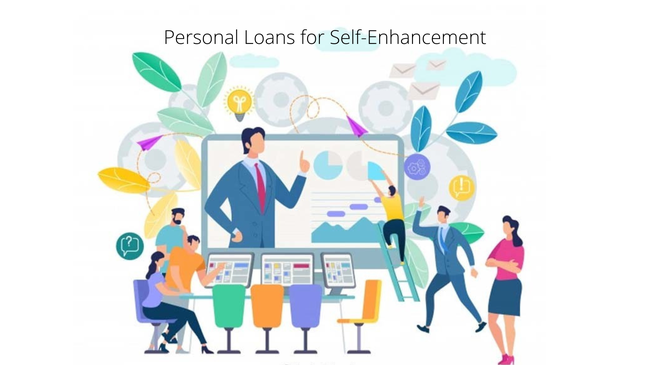Introduction
The pursuit of personal growth is a timeless endeavor, rooted deeply in the human psyche. Throughout history, humans have sought to better themselves, be it through acquiring knowledge, mastering a new skill, or simply understanding oneself more deeply. In our modern age, this quest often manifests through self-improvement courses and workshops that promise enlightenment, skill enhancement, or even career progression. Yet, as the adage goes, "Knowledge is rarely free," and in today's context, quality education and training often demand a significant financial commitment.
Enter personal loans — a financial tool that has long bridged the gap between aspirations and realities for many. While traditionally associated with large expenses like homes or cars, a growing number of individuals now contemplate personal loans as a means to finance their self-improvement ambitions. But, as with any financial instrument, the decision to leverage debt for personal growth carries both opportunities and challenges. The question then becomes: Is incurring a debt for self-improvement a wise investment in oneself, or a financial pitfall waiting to happen? Let's dissect this concept, weighing the potential benefits against the inherent risks.
Pros of Using Personal Loans for Self-Improvement
Immediate Access
A personal loan can provide immediate funds, enabling you to enroll in courses without waiting to save up.
Investing in Oneself
By improving your skills or knowledge, you can potentially open doors to higher-paying job opportunities or promotions.
Flexible Repayment
Personal loans often offer flexibility in repayment terms, allowing you to choose a period that aligns with your financial situation.
Unsecured Nature
Most personal loans are unsecured, which means you don’t need to provide collateral.
Fixed Interest Rates
Many personal loans come with fixed interest rates, making it easier to budget for repayments.
Cons of Using Personal Loans for Self-Improvement
Debt Obligation
Like any loan, it's a debt you'll need to repay, potentially straining your finances if you don't manage it wisely.
High-Interest Rates
Personal loans can sometimes have higher interest rates compared to other loan types.
Potential Overborrowing
There's a temptation to borrow more than needed, which can lead to unnecessary debt.
Impact on Credit Score
Failure to repay the loan timely can negatively impact your credit score.
Opportunity Cost
The money spent on loan repayments could have been used for other financial goals or investments.
Best Practices & Guidelines
Assess the ROI
Before borrowing, evaluate the potential return on investment. Will the course significantly enhance your skills or job prospects?
Shop Around
Research multiple lenders to find the best interest rates and terms that suit your financial condition.
Read the Fine Print
Understand all terms and conditions, including any hidden fees or charges.
Borrow Only What You Need
It's tempting to borrow more, but remember, you're paying interest on every dollar.
Have a Repayment Plan
Before borrowing, map out how you'll repay the loan. Consider setting up automatic payments to avoid missing any.
Conclusion
Personal growth is an endeavor that shapes lives, careers, and futures. Using personal loans to catalyze this development speaks to a commitment to lifelong learning and self-improvement. However, every financial step we take has its repercussions, and this is no different.
The decision to take out a loan, especially for self-improvement courses and workshops, is as much an emotional one as it is financial. Beyond the tangible skills acquired, these courses often imbue individuals with renewed confidence, a fresh perspective, and a broader network. The intangible benefits can sometimes outweigh the immediate financial outlay.
Yet, it's essential to juxtapose this against the long-term implications of debt. Financial obligations can be stress-inducing, and the pressure to ensure that the course or workshop taken provides a return on investment adds another layer of complexity to the decision. Will the skills acquired lead to a better job? Can they pave the way for a promotion or a new business venture? These are questions that deserve introspection.
In conclusion, the journey of personal growth is profoundly personal. While the allure of using credit to hasten this journey is strong, it is a path that demands careful navigation. Ensure that your zeal for self-improvement is matched with a well-thought-out financial plan. By striking a balance between ambition and financial prudence, you can truly harness the transformative power of education without compromising your financial future. Remember, personal growth should empower, not encumber.

